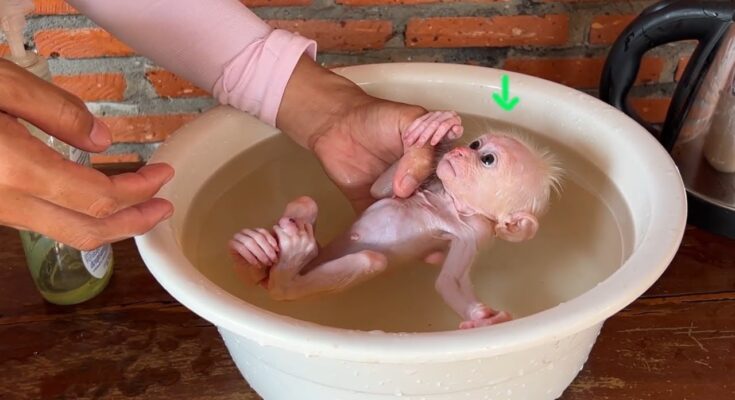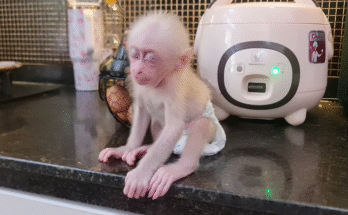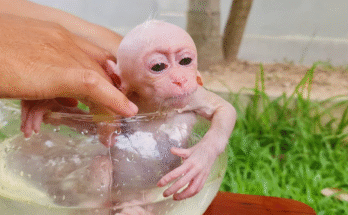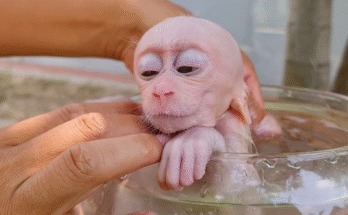Baby monkeys need warm water baths for several important reasons related to their health, comfort, and development.
First, baby monkeys have delicate skin and a weak immune system. Warm water helps keep them clean without causing discomfort or shock to their bodies. Cold water can lower their body temperature too quickly, leading to hypothermia or stress. Since baby monkeys rely on warmth from their mothers in the wild, warm water mimics that natural warmth, making them feel safe and comfortable.
Second, hygiene is crucial for baby monkeys, especially if they are being cared for in a rehabilitation center or as pets. Monkeys love to explore, and they can get dirty easily. A warm water bath helps remove dirt, bacteria, and potential parasites from their fur and skin. Keeping them clean prevents infections and other health issues.
Another reason warm water is necessary is that it helps relax their muscles and reduces stress. Just like human babies, baby monkeys can feel anxious or restless. A warm bath can calm them down, making them more comfortable and content.
Additionally, bathing can strengthen the bond between the monkey and its caretaker. If done gently and with care, the monkey learns to trust humans, which is especially important for orphaned or rescued monkeys.
However, it is important to dry the baby monkey properly after a bath to prevent chills. Using a soft towel and keeping them warm afterward ensures they stay healthy and happy.
Rescuing three poor, hungry baby monkeys was a heart-wrenching yet rewarding experience
A wildlife rescue team was quickly contacted, and they carefully approached the frightened little ones. The baby monkeys, though weak, tried to hold onto each other for warmth and comfort. With gentle hands and soft voices, the rescuers wrapped them in warm blankets and placed them in a secure carrier.
Once at the rescue center, the veterinarians examined them. They were severely malnourished, dehydrated, and covered in tiny wounds. Immediate care was provided—hydration, vitamins, and a special milk formula to help them regain strength. Slowly, their fragile bodies began to respond to the care and nourishment.
Over the next few weeks, the baby monkeys showed remarkable progress. They started playing with each other, climbing, and even responding to their caretakers with trust. Their once-dull eyes now sparkled with curiosity and life.
The ultimate goal was to rehabilitate them and, if possible, release them back into the wild. However, if survival in the wild wasn’t an option, they would find a forever sanctuary where they could live safely.
Their journey from starvation to recovery was a testament to kindness and the power of compassion. Saving these innocent creatures ensured they got a second chance at life.



